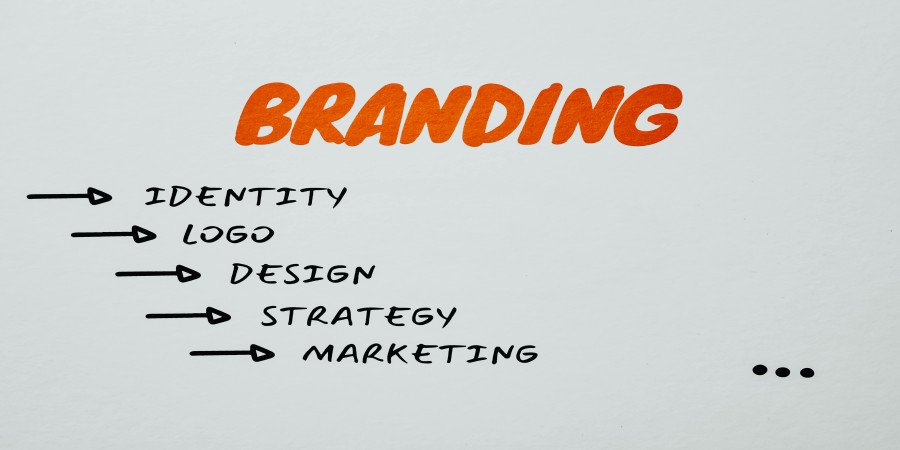

How to Build a Personal Brand as a Freelancer
Introduction to Personal Branding
- Personal branding has emerged as an indispensable component for freelancers in today's competitive market. Unlike traditional employees who primarily rely on the reputation of their employer, freelancers must cultivate their unique personal brand to attract clients, build trust, and establish a distinctive identity. A strong personal brand not only highlights your skills and expertise but also acts as a magnet to draw potential clients toward your services.
- One of the fundamental advantages of a well-developed personal brand is its ability to set you apart from the competition. With numerous freelancers offering similar services, a strong personal brand provides a competitive edge by showcasing your unique attributes, values, and the specific value you bring to your clients. This differentiation is crucial in capturing the attention of prospective clients who are seeking the right fit for their projects.
- Establishing trust is another significant benefit. Clients are more likely to engage with freelancers who present a consistent and professional image, both online and offline. Your personal brand serves as a testament to your reliability and professionalism, quickly building a rapport with potential clients. Trust becomes the cornerstone of your client relationships, leading to repeat business and referrals.
- The steps to creating a personal brand involve a strategic approach. It begins with self-discovery and understanding your core values, strengths, and the unique selling points that make you stand out in your field. Following this, clearly articulate your brand message and consistently communicate it across various platforms, including social media, personal websites, and professional networks. Visual branding elements such as logos, color schemes, and consistent typography also play a crucial role in creating a cohesive brand identity.
- In conclusion, the importance of personal branding for freelancers cannot be overstated. It is a powerful tool to attract more clients, build lasting trust, and carve out a niche in a crowded marketplace. By strategically developing and maintaining your personal brand, you can unlock new opportunities and achieve sustained success in your freelance career.
Identifying Your Niche and Unique Selling Proposition (USP)
- Identifying a niche within the expansive freelance market is crucial for building a targeted personal brand. By focusing on a specific area, freelancers can position themselves as experts and attract clients who seek specialized skills. The process begins with a thorough self-assessment of one's skills, strengths, and experiences. This introspective approach allows freelancers to discover what they genuinely excel at and are passionate about, which forms the foundation of a unique selling proposition (USP).
- To identify a niche, consider factors such as industry demand, personal interests, and marketable skills. For instance, a freelance graphic designer might narrow their focus to branding for small businesses. This specificity not only distinguishes them from generalists but also helps in creating content and marketing strategies that attract a well-defined audience. Keywords highlighting their specialization, like "branding," "graphic design," and "small business," naturally integrate into their personal brand narrative, enhancing searchability and relevance.
- The next step is articulating your USP—a clear and compelling statement that conveys what makes you different. Your USP should encapsulate your unique skills, the benefits you offer, and how you meet clients' needs in ways that others don't. For example, a freelancer might craft a USP like, "I provide eco-friendly, visually striking branding solutions that resonate deeply with environmentally-conscious businesses." This not only emphasizes their niche expertise but also aligns them with a particular client base.
- Practical tips for defining your USP include analyzing client feedback and identifying recurring themes in your work that clients appreciate. Reflect on past projects to pinpoint successful strategies and unique contributions. Additionally, researching competitors can reveal gaps in the market that your unique strengths can fill, further refining your niche.
- In essence, building a personal brand as a freelancer hinges on understanding and leveraging your niche and USP. These elements not only guide your marketing efforts but also ensure that your brand resonates powerfully with the right clients.
Building an Online Presence
- Establishing a robust online presence is a fundamental step in building a successful personal brand as a freelancer. The first step in this process is creating an engaging personal website or portfolio. This website serves as a digital business card, reflecting your professional identity and showcasing your expertise and past projects. Ensure that it is user-friendly, visually appealing, and includes key elements such as a clear bio, a portfolio of your work, client testimonials, and contact information. Tools such as WordPress, Squarespace, or Wix can help create a polished and professional site, even without advanced technical skills.
- In addition to a personal website, having a professional email address is crucial. Using a custom email domain not only adds a layer of credibility but also reinforces your brand. For instance, an address such as [yourname]@[yourdomain].com creates a more professional impression compared to a generic email service.
- Optimizing social media profiles is another vital aspect of building your online presence. Platforms like LinkedIn, Twitter, Instagram, and even Facebook can act as powerful channels to display your work, share insights, and connect with potential clients. Ensure that your profiles are consistent across platforms—use the same profile picture, bio, and contact information to create a cohesive brand image. Regularly update your profiles and engage with your audience through posts, comments, and shares to show that you are active and engaged in your field.
- Consistency in branding across all online platforms cannot be overstated. Every piece of content, from your website to your social media posts, should reflect your brand's voice and values. This consistent branding helps potential clients and collaborators recognize and trust your online persona.
- Effectively utilizing online platforms to showcase your expertise involves being strategic about what you share. Post about your projects, share industry-related news, write thoughtful blog posts, and engage in conversations within your field. This not only highlights your expertise but also positions you as a knowledgeable and active member of your professional community.
Creating and Sharing Valuable Content
- In the realm of personal branding, content creation is a pivotal component. By generating high-quality content, freelancers can effectively demonstrate their expertise and deliver value to their target audience. The primary objective is to establish oneself as a knowledgeable and reliable resource within the industry. An essential strategy in this endeavor includes diversifying the types of content produced. This may encompass blogging, videos, podcasts, and infographics, each serving to engage different segments of the audience and catering to varying preferences.
- Blogging remains a powerful medium to share in-depth knowledge and insights. It allows freelancers to cover topics comprehensively, provide tutorials, detailed analyses, or case studies that highlight their skills and experience. Maintaining a blog with regular updates keeps the audience informed and engaged while subtly reinforcing the personal brand. Additionally, video content can be a dynamic way to connect with the audience on a more personal level. Tutorials, webinars, and behind-the-scenes videos can showcase a freelancer's work process, adding a layer of authenticity to their brand.
- Podcasts, too, are increasingly becoming a popular medium to reach audiences who prefer audio content. Hosting a podcast can position a freelancer as an industry thought leader while interviews with other experts can broaden their reach and introduce new insights to their audience. Infographics, on the other hand, are excellent tools for visual learners. They can simplify and present complex information in a more digestible and visually appealing manner.
- The success of these content strategies hinges significantly on the implementation of a well-planned content calendar. This helps in systematically organizing content creation and distribution, ensuring consistency and relevance. A content calendar aids in planning ahead, integrating various content types, and maintaining a steady flow of valuable information to the audience.
- Underpinning these content strategies is the power of storytelling. Through compelling narratives, freelancers can weave their personal experiences and professional insights into their content. Storytelling creates an emotional connection, making the content more relatable and memorable. By embedding stories into blogs, videos, or podcasts, freelancers can differentiate themselves from competitors, fostering a stronger and more memorable personal brand.
Networking and Building Relationships
- Networking is a pivotal aspect of establishing a robust personal brand as a freelancer. Building relationships, both online and offline, is essential for extending one’s professional reach and cementing a solid standing in the industry. Engaging in meaningful interactions with peers, influencers, and potential clients can significantly enhance your visibility and open doors to various opportunities.
- One of the most effective ways to network is by joining industry groups. These groups, whether they’re professional associations or online communities, offer an invaluable platform for building connections. Engaging actively in such groups can help you stay updated on the latest trends and best practices in your field, thereby strengthening your expertise and credibility.
- Attending conferences is another crucial strategy. Conferences provide an excellent opportunity to meet and engage with industry leaders and fellow professionals face-to-face. These interactions can lead to lasting professional relationships that could immensely benefit your freelance career. While at conferences, don’t hesitate to partake in discussions, attend workshops, and exchange contact information with other attendees.
- In an increasingly digital age, participating in online forums and webinars is equally important. These platforms afford you the convenience of networking without geographical constraints. Engaging in discussions, sharing your knowledge, and asking insightful questions can position you as a thought leader within your industry. Furthermore, many webinars also offer networking sessions where you can directly interact with other participants and speakers.
- Social media is yet another powerful tool for networking. Platforms like LinkedIn, Twitter, and Instagram allow you to connect with industry peers, influencers, and potential clients. It’s crucial to maintain an active presence by regularly posting relevant content, engaging in conversations, and commenting on posts from others within your industry. Genuine interactions can foster trust and credibility, crucial components in building a personal brand.
- Ultimately, a well-integrated approach combining online and offline strategies will be most effective in building meaningful relationships and expanding your professional network. The foundation of successful networking lies in consistency, authenticity, and a genuine desire to contribute to your industry community.
Leveraging Testimonials and Case Studies
- Utilizing testimonials and case studies effectively can significantly boost a freelancer's personal brand by establishing credibility and trust. These social proofs serve as powerful endorsements from satisfied clients, providing potential customers with tangible evidence of your expertise and reliability.
- To begin leveraging testimonials, start by requesting feedback from clients at the conclusion of each project. A direct yet polite approach usually works best. For instance, you might say, "I would greatly appreciate your feedback on our recent project. Your testimonial can greatly assist in showcasing my work to prospective clients." Once obtained, ensure the testimonials are displayed prominently on your website, portfolio, or LinkedIn profile. Organize them logically, perhaps by project type or industry, to make them easy to relate to for potential clients. An engaging testimonial should emphasize the client's problem, your solution, and the successful outcome, thus illustrating your value proposition effectively.
- Case studies take this concept a step further by providing a detailed narrative of a specific project. Start by selecting projects that best represent your skills and who you wish to attract in the future. Structure your case study with a clear beginning outlining the client's challenge, followed by an in-depth description of your approach, techniques used, and the end results. Include quantifiable metrics wherever possible—such as increased sales, improved social media engagement, or substantial cost savings—to give a clear, measurable sense of the impact. Visual elements like charts, before-and-after comparisons, and screenshots can also enhance the narrative and make your case study more engaging.
- The impact of testimonials and case studies cannot be overemphasized. They provide a tangible narrative recreating the success of past projects, which potential clients can project onto their own needs. This sense of relatability and proven success makes them more likely to trust and hire you. By systematically gathering and prominently displaying these endorsements and success stories, you can greatly enhance your credibility, illustrating the real-world application of your skills and drawing in new business opportunities more effectively.
Maintaining and Evolving Your Brand
- Maintaining and evolving a personal brand as a freelancer is an ongoing effort that requires consistent attention and adaptability. To begin with, it is essential to regularly update your content. This can be achieved by developing a content calendar to ensure a steady flow of fresh, relevant material. Updating your blog, social media profiles, and portfolio with recent work showcases your latest achievements and skill set, keeping your audience engaged and informed about your growth.
- Adapting to industry trends is another crucial component of brand evolution. Staying abreast of industry changes and incorporating relevant trends into your brand can set you apart from competitors. This means not only being aware of new technologies, methodologies, and best practices but also having the agility to integrate them into your services and content. Follow industry influencers, participate in webinars, and attend conferences to stay updated with the latest developments.
- Continuous professional development plays a pivotal role in evolving your personal brand. Enrolling in courses, earning certifications, and attending workshops can significantly boost your expertise. This demonstrates your commitment to growth and keeping your skills sharp. Making these credentials visible on your online profiles validates your proficiency and dedication to your field.
- Seeking feedback is integral to brand maintenance and evolution. By asking for constructive criticism from clients, peers, and mentors, you can gain invaluable insights into areas of improvement. Utilize surveys, direct feedback sessions, and online reviews to gather this information. Analyze the feedback and implement necessary adjustments to ensure your brand remains relevant and meets the expectations of your target audience.
- Lastly, ensure that your brand remains competitive by regularly reviewing and adjusting your brand strategy. Conduct SWOT (Strengths, Weaknesses, Opportunities, Threats) analyses to assess your position in the market and identify areas for enhancement. This helps in aligning your brand with your evolving professional goals and market demands, keeping it pertinent and robust in a dynamic freelancing ecosystem.
Measuring the Impact of Your Personal Brand
- Monitoring the effectiveness of your personal branding efforts is crucial to ensuring sustained growth and success as a freelancer. To achieve this, it is essential to utilize various tools and metrics that provide insights into your brand performance. One of the primary methods is assessing website traffic analytics, which can help you understand how visitors are interacting with your content and identify key areas for improvement. Tools like Google Analytics or similar platforms offer comprehensive data on page views, bounce rates, and user behavior, allowing you to fine-tune your website content and design.
- Social media engagement serves as another vital metric for evaluating your personal brand's impact. Platforms such as Facebook, Twitter, LinkedIn, and Instagram provide native analytics that show your follower growth, post reach, and engagement rates. By analyzing these metrics, you can determine which content resonates most with your audience and adjust your strategy accordingly. Additionally, tools like Hootsuite and Buffer offer more in-depth social media insights, enabling you to track hashtags, mentions, and overall social media performance.
- Client feedback is equally important in measuring your personal brand's success. Positive testimonials and reviews can significantly enhance your credibility and attract new clients. Regularly requesting and analyzing feedback from your clients, whether through formal surveys or informal conversations, equips you with valuable information on where to improve and what aspects of your brand are most effective. Platforms like Google My Business and LinkedIn recommendations can centralize and display such feedback, making it easily accessible for potential clients.
- By synthesizing data from website analytics, social media engagement, and client feedback, you can gain a comprehensive understanding of your brand’s current standing. Use these insights to refine your personal branding strategies, focusing on what works best and continuously adapting to evolving trends and client preferences. This continuous improvement ensures your personal brand remains strong and impactful in the competitive freelance market.
Popular articles

Jul 29, 2024 03:40 PM

Jul 30, 2024 03:51 PM

Jul 28, 2024 03:34 PM

Jul 27, 2024 03:28 PM

Jul 03, 2024 06:26 AM
Comments (0)